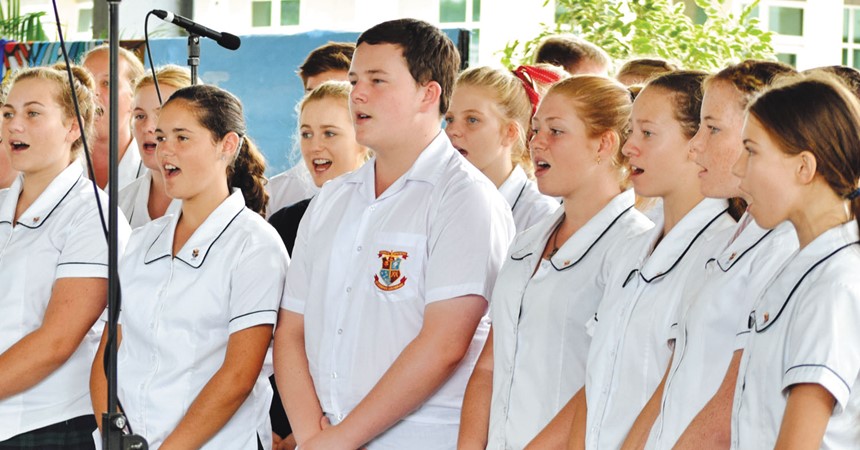There is also ample evidence of singing and music in biblical times − there are examples of this scattered throughout the Hebrew and Christian scriptures. The Psalms of David have the most musical references − the word ‘psalm’ itself comes from the Greek word meaning ‘to sing’ − and Jesus and the apostles sang a hymn at the Last Supper prior to Jesus’ arrest on the Mount of Olives. In our world today, it has been proven that music − listening to it or performing it − makes us feel good. There are various chemical reactions that occur when our brains are stimulated by music, and these occur even more so when we are intimately involved with the production of music as well.
Today, choral music and choirs are lauded for their numerous health, social and community benefits. Research into these areas has grown exponentially over the last decade, and the effect of these benefits is now obvious to all those who work with choirs formed to support rehabilitation and wellbeing. A 2010 study by Victoria Health found that there were many important elements that came into play when participants sang in a choir − “to many respondents who commented on the importance of singing as being part of a collective experience, singing and music were not necessarily secondary to the social aspect, but a product of teamwork and people coming together to share their love of singing” (Gridley et al 2010, p 6).
The rise of community choirs has come about to foster accessibility to education, and to facilitate the creation of social cohesion within communities. Deanna Yerichuk from the University of Toronto has argued, “…music and music education were framed as an important part of the cultural uplift of society and tied to political and economic improvement” (Lee, 2007, 94). As J Lawrence Erb argued back in 1926, “it is the business of community music to afford to each individual the fullest opportunity to come into contact with this beneficent influence in the most effective way” (Yerichuk, 2014, p. 129). For those who sing in these ensembles, the social connectedness of building friendship, working as a team and achieving as a body can often take precedence to the actual act of singing. In an interview from 2014, English composer and conductor, John Rutter, said, “choral music is not one of life’s ‘frills’. It is something that goes to the very heart of our humanity; our sense of community; and our souls.”
It is this ethos that is at the core of community choral music; music that is created and presented at a communal level for the good of those involved has countless benefits. Why do we sing? Why is singing so contagious? Why do we feel the need to join in? Why do we all express how much joy we get from it? And most importantly, why do we enjoy singing with other people so much? Is there a pivotal moment in your life when you can recall singing in a choir for the first time, and if you took a minute to think on this, would you be able to recall why you enjoyed it most?
As a chorister myself, I can fully appreciate John Rutter’s sentiment. I have experienced moments of joy and ecstasy – moments where the music moved in such a way, it was as if time had stood still. The sound of thirty voices singing in perfect harmony and in unity with each other is a spectacle to see, hear and be a part of, and it is moments like these when I am reminded how truly moving music is.
The ability to sing and to express ourselves through music is an important human function. Whether it is singing in a community choir, a cathedral choir or a professional chorus, the message remains − few experiences can pierce one right to the soul and make one feel the things most difficult to express as can music. In the words of Plato, “it gives soul to the universe, wings to the mind, flight to the imagination, and charm and gaiety to life and everything”.
Callum Close is a Newcastle-based organist, conductor and pianist. He studied at the University of Newcastle and is a keen chorister himself.























































































